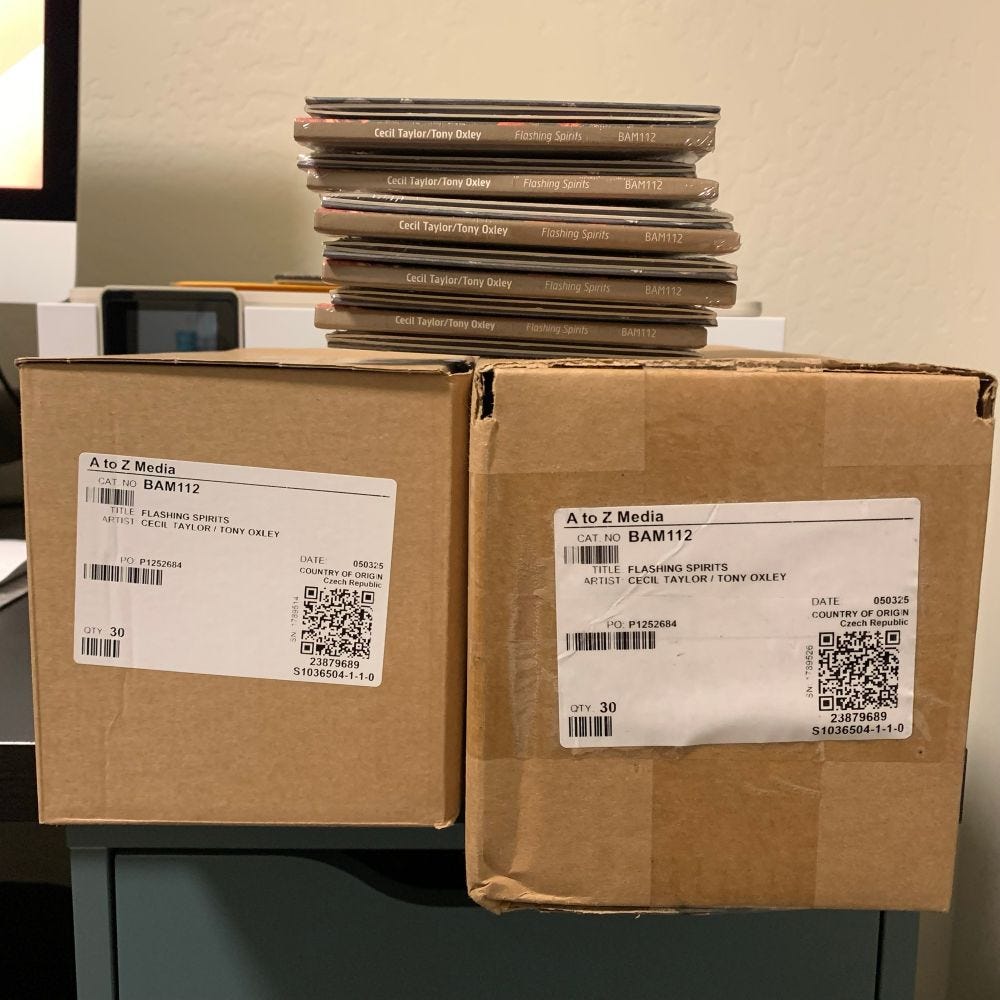A World With No Lemmy In It
Motörhead's final album turns 10
Today’s newsletter is for paying subscribers only. If you’re not a paying subscriber, I hope you’ll become one. Not only will you get exclusive content every Friday, you’ll also be entitled to free downloads of releases on our label, Burning Ambulance Music.
And speaking of our label: See this photo?
Those are the final copies of the Cecil Taylor/Tony Oxley album Flashing Spirits, a previously unreleased live duo performance from 1988 which has received rave reviews from The Wire, DownBeat, The Gig, the Free Jazz Blog, AllAboutJazz, and many other outlets. I’ve got two boxes of 30 copies, and a few more individual copies, and that’s it. So if you want one (and you do; the packaging is as beautiful as the music), order now. Here’s the link.
(If you’re in Europe, I know the price and shipping charges are exorbitant. That’s deliberate; get in touch via email and we’ll figure something out.)
OK, that’s it. Here we go…
Ian “Lemmy” Kilmister, founder and leader and sole constant member of Motörhead for 40 years, died December 28, 2015, four days after his 70th birthday and four months after the release of the band’s 22nd studio album, Bad Magic, on August 28, 2015.
Over the course of 40 years, Motörhead released 22 studio albums, plus On Parole (a previously rejected album that a label they weren’t on anymore pushed out when they seemed to be taking off) and No Remorse, a double-LP compilation with four new songs. During Lemmy’s life and after, there have also been a seemingly endless stream of live recordings, some of which are excellent (No Sleep ’Til Hammersmith, The Birthday Party) but most of which are superfluous, except as reminders — or hints, for those who never saw them — of what was.
I first heard Motörhead when I was 13 or 14. I was just starting to develop my own musical taste, and like most boys that age was drawn to loud, aggressive music. The first band I really loved was Judas Priest. But a slightly older friend had been converted to punk by his older brother, and one day loaned me a copy of No Remorse, saying (I’m paraphrasing; it’s been 40 years), “This is the only metal band worth listening to.” He was wrong about that, of course, but it’s a common enough sentiment — back in the ’80s in particular, Motörhead existed as a bridge between the worlds of punk and metal. Everyone from either “side” who heard them got it right away.
Keep reading with a 7-day free trial
Subscribe to Burning Ambulance to keep reading this post and get 7 days of free access to the full post archives.



